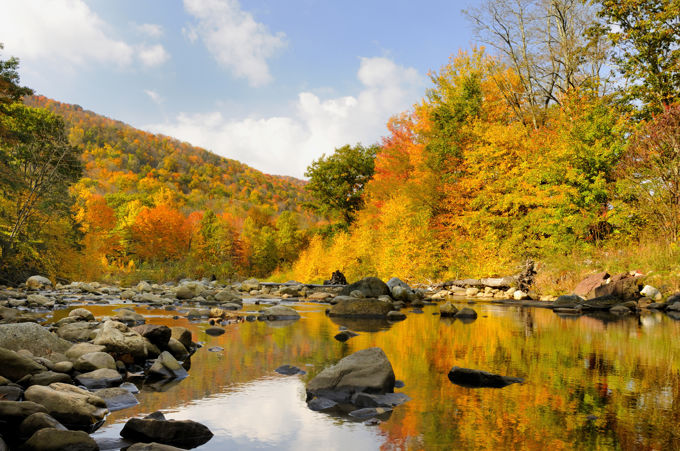
Maximizing Benefits of Conservation Easements for Waterfront Properties in Virginia
Introduction
In 2019 the Chickahominy Indian Tribe acquired a permanent home for its people by purchasing a 105-acre site along the James River, in Charles City County, Virginia. The Tribe made the purchase with a $3.18M grant from the Virginia Land Conservation Foundation. This land now provides a location to showcase the culture and traditions of the Tribe, and the land is permanently protected from development by a conservation easement held by the Virginia Outdoors Foundation. In addition, this conservation easement also protects scenic resources, Chesapeake Bay water quality and wildlife diversity.
What is a Conservation Easement?
Conservation easements are available for use at waterfront and inland properties in Virginia. A conservation easement is a voluntary agreement with a nonprofit land trust or government agency that allows a landowner to limit the type or amount of development on their property, while retaining private ownership of the land. It is a permanent legal agreement that gets recorded in the land records at the local courthouse. It applies even when the property changes ownership. One reason landowners donate a conservation easement is to preserve their land in its natural state, while maintaining ownership and still allowing their family, tribe or other organization to live and work on the land. There is, in addition, a strong economic reason that motivates a landowner in Virginia to agree to impose a conservation easement on the land. The landowner who donates the easement may qualify to receive certain valuable tax benefits.
Shutterstock: Bilous
State Income Tax Benefits Provided by Conservation Easements in Virginia
The legislature enacted the Virginia Land Conservation Incentives Act of 1999, found at Virginia Code §§58.1-510 to 513. This law created Virginia’s Land Preservation Tax Credit program. Its purpose is to encourage preservation and sustainability of Virginia’s natural resources, wildlife, open spaces and forest resources. It provides an income tax credit in the amount of 40% of the fair market value of the interest in land represented by the conservation easement, this value to be established by a “qualified appraisal”, prepared by a “qualified appraiser”. No person or entity may hold the easement, other than the Commonwealth of Virginia, or a qualified private nonprofit organization, typically a land trust (of which there are 28 at the present time in Virginia, with Virginia’s United Land Trusts operating as an “umbrella” organization for all of the land trusts in Virginia). The income tax benefit under Virginia law is only available if the conservation easement qualifies as a charitable deduction under the federal income tax law, 26 U.S.C. §170(h). Virginia taxpayers may use up to $50,000 of the tax credit each year, to reduce their Virginia state income tax obligation, and may carry the tax credit forward for up to ten years after the year of donation. Unused credits may be sold. If the holder of the credit dies, the credit transfers to his or her heirs.
Federal Income Tax Benefits Provided by Conservation Easements in Virginia
The federal tax benefit is codified at 26 U.S.C. §170(h). An important difference between the federal and Virginia tax benefit is that the federal tax code offers a tax deduction whereas the state benefit provided by Virginia law is a tax credit. Another important difference is that the federal deduction may be reduced by the amount of the income tax credit a taxpayer obtained under Virginia law.
Other Tax Benefits Provided by Conservation Easements
The conservation easement may qualify for a benefit under the federal estate tax law (Virginia has no estate tax).
Frequently Asked Questions about Conservation Easements on Waterfront Properties in Virginia
1. What is a conservation easement?
A conservation easement is a voluntary agreement between a landowner and a nonprofit land trust or government agency that limits the type or amount of development on their property while retaining private ownership of the land.
2. What are the benefits of a conservation easement?
By donating a conservation easement, a landowner can preserve their land in its natural state, while maintaining ownership and still allowing their family, tribe or other organization to live and work on the land. In addition, there are valuable tax benefits available at both the state and federal levels.
3. What state income tax benefits are provided by conservation easements in Virginia?
The Virginia Land Conservation Incentives Act of 1999 created Virginia's Land Preservation Tax Credit program, which provides an income tax credit of 40% of the fair market value of the interest in land represented by the conservation easement, up to $50,000 per year.
4. What federal income tax benefits are provided by conservation easements in Virginia?
The federal tax benefit is a tax deduction for the value of the conservation easement, as established by a qualified appraisal. The deduction may be reduced by the amount of the
income tax credit obtained under Virginia law.
5. What other tax benefits are provided by conservation easements?
The conservation easement may qualify for a benefit under the federal estate tax law.
Conclusion
The attorneys on our Waterfront Property Law Team have strong connections, significant legal experience and go the extra mile for our clients to get the job done. A few years ago one of our attorneys kicked off his shoes and got in the water to fend off a criminal enforcement action. The attorney got soaked in the process, but he protected our client from facing criminal charges.
Contact Jim Lang if you would like to see him publish more information on how the conservation easement laws affect waterfront property owners in the state of Virginia. Of course, you can always contact Jim for his advice and assistance in connection with needs specific to your particular situation.
